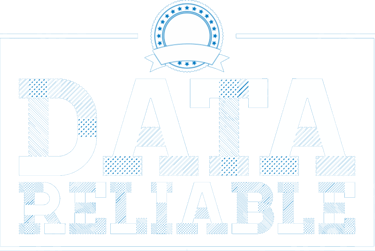The Importance of Reliable Data in Decision Making
How accurate and reliable data fuels better business and strategic decisions
Kylo B
The Importance of Reliable Data in Decision Making
How accurate and reliable data fuels better business and strategic decisions
In today’s fast-paced business world, data is often referred to as the "new oil." This metaphor highlights how valuable data is when leveraged properly.
However, just like oil must be refined to be useful, data must be accurate and reliable to truly fuel business growth and strategic decisions.
The importance of reliable data in decision-making cannot be overstated—companies that make decisions based on faulty or incomplete information risk damaging their operations, losing competitive advantages, and ultimately hindering growth.
What Is Reliable Data?
Reliable data refers to information that is accurate, consistent, and dependable over time. It is data that has been thoroughly vetted and verified to be free from errors, gaps, and inconsistencies. Reliable data enables organizations to trust the information they use to make critical decisions.
A key aspect of data reliability is consistency. For data to be considered reliable, it must consistently reflect the true state of whatever it measures, whether it’s customer behavior, product performance, or financial metrics. Reliable data is gathered through sound methodologies, is updated regularly, and can be replicated or confirmed by other data sets or tests.
The Role of Reliable Data in Decision Making
Informed Decisions Lead to Better Outcomes
Reliable data forms the foundation of informed decision-making. Whether it's launching a new product, entering a new market, or streamlining internal processes, decisions based on trustworthy data tend to be more accurate and lead to better outcomes. For example, a company looking to launch a new product can analyze reliable market research data to identify consumer trends and preferences. This data ensures that the product aligns with current demand, reducing the risk of a failed launch.Mitigating Risk Through Reliable Insights
Every business decision carries some level of risk. Reliable data helps mitigate that risk by providing a clear understanding of the potential outcomes. When leaders base their strategies on data that has been verified for accuracy, they can anticipate challenges and navigate them more effectively. For instance, reliable financial data can help a business forecast cash flow more accurately, reducing the risk of overextension or missed financial opportunities.Building Long-Term Strategies
Reliable data isn’t just about making short-term tactical decisions—it’s crucial for developing long-term strategies. Companies that can accurately predict future trends, consumer behaviors, and market shifts position themselves for sustained success. Using reliable data, businesses can track performance indicators, set realistic goals, and adjust strategies to meet evolving demands.Improving Efficiency and Reducing Waste
One of the key benefits of reliable data is its ability to identify inefficiencies within an organization. Data-driven businesses can use accurate information to streamline operations, reduce waste, and allocate resources more effectively. For example, reliable data on customer preferences can help a retailer stock inventory more efficiently, ensuring that the right products are in the right places at the right times, which reduces excess inventory and minimizes costs.Enhancing Customer Relationships
In today’s customer-centric economy, reliable data is key to understanding and meeting customer needs. By using accurate and up-to-date information about customer behavior, preferences, and feedback, businesses can tailor their offerings and improve customer satisfaction. A company that regularly tracks and analyzes reliable customer data is better equipped to personalize its services and build stronger relationships, which can lead to increased loyalty and long-term profitability.
The Dangers of Unreliable Data
Using unreliable data can be worse than making decisions based on no data at all. Misinformation or incomplete data can lead to misguided strategies that cost time, money, and reputation. Common problems caused by unreliable data include:
Missed Opportunities: Decisions based on incomplete or incorrect data can cause businesses to miss out on valuable opportunities, such as expanding into new markets or launching profitable products.
Poor Financial Management: Unreliable financial data can lead to mismanagement of resources, causing budget overruns, misallocation of capital, or missed savings opportunities.
Damage to Reputation: If a business relies on inaccurate data when communicating with customers or stakeholders, it risks damaging its reputation and losing trust.
Ensuring Data Reliability
To reap the benefits of reliable data, businesses must implement best practices for data collection, storage, and analysis. Some key steps include:
Standardizing Data Collection Methods: Ensuring consistency in how data is collected helps prevent errors and discrepancies.
Data Cleaning and Validation: Regularly cleaning data to remove duplicates, correct inaccuracies, and fill in missing information ensures that it remains reliable over time.
Investing in Data Management Tools: Utilizing modern data management platforms helps organizations track, store, and analyze their data more effectively, improving overall reliability.
Training Employees: Ensuring that employees understand the importance of data accuracy and are trained to handle data properly is key to maintaining reliable information.
In a business landscape where data drives every decision, having reliable, accurate, and consistent information is crucial.
Organizations that invest in the quality and reliability of their data will make better decisions, manage risk more effectively, and stay ahead of their competition.
Reliable data is the foundation of informed decision-making—and the key to long-term business success.
Subscribe to our newsletter


